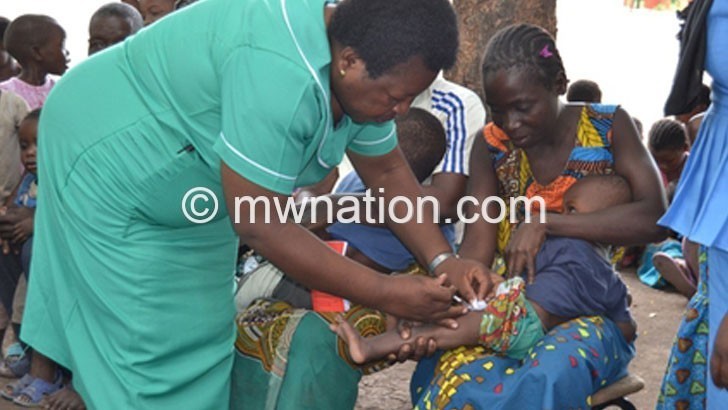Survey shows under-5 deaths high in poor households
The fourth Multiple Indicator Cluster Survey (Mics) released by the National Statistical Office (NSO) on Thursday shows that under-five deaths remain the highest in poor households compared to rich households.
According to findings of the survey, 62 deaths out of every 1 000 live births are reported in poor households compared to 39 deaths per every 1 000 live births in rich households.

The survey, conducted between December 2019 and August 2020, also shows that the under-five mortality rate is highest among women in rural areas at 58 deaths out of 1 000 live births compared to 42 deaths out of every 1 000 live births in urban areas.
Besides, the survey, which was supported by the United Nations Chi ldren’s Fund (Unicef), also shows that under-five mortality rate is high in children whose caregivers have primary education at 61 deaths per 1 000 live children compared to those with upper secondary education at 34 deaths per 1 000 live children.
Reads part of the survey: “Under-five mortality rate ranged from 39 deaths per 1 000 live births in the Northern Region to 59 deaths per 1 000 live births in the Southern Region, for the five years preceding the survey.”
Results of the survey cast doubts on the country’s attainment of Sustainable Development Goals (SDGs) which aim to end, by 2030, preventable deaths of newborns and children under five years of age.
The SDGs provide that all countries must aim to reduce neonatal mortality to at least as low as 12 deaths per 1 000 live births and under-five mortality to at least as low as 25 deaths per 1 000 live births by 2030.
In an interview on Saturday, epidemiologist Titus Divala said the results show that good health and better chances of child survival are correlating with either better education or being rich.
He said: “These findings should teach all of us as a nation how investment in education and people’s economic activities can have a huge impact on how long they and their children can live. Health is easily affected by how we deal with poverty.”
Divala said it is, therefore, important for the country’s leaders to know that if people are kept in poverty, their health will remain poor and that their contribution to the economy will remain low.
In a separate interview, Health and Rights Education Programme executive director Maziko Matemba said the survey findings show a need for the government to invest in community health by targeting rural communities with quality health services.
“We cannot allow the rural households to be on the receiving end of quality healthcare with less than 50 percent coverage. This is against the principle of Universal Health Coverage of leaving no one behind,” he said. The survey was carried out by NSO as part of the global Mics programme.





